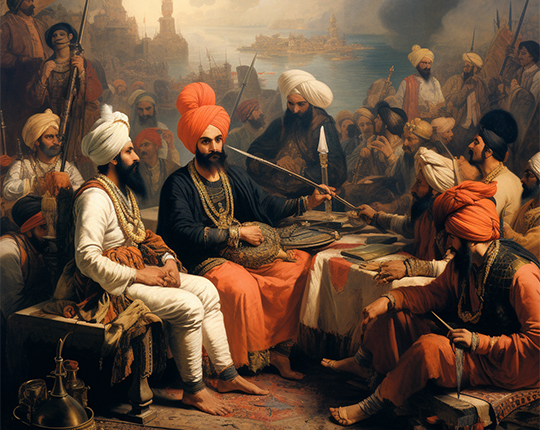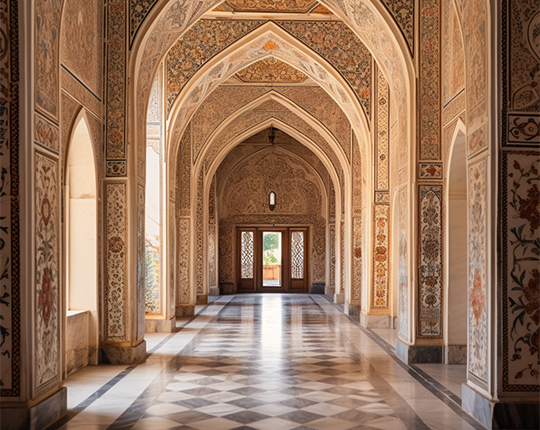Global Community Organizations During Maharaja Ranjit Singh’s Era
In the transformative era of Maharaja Ranjit Singh, the Sikh diaspora witnessed the emergence of diverse global community organizations.
These organizations played a crucial role in uniting and representing Sikhs living outside the borders of the Sikh Empire.
Ranging from religious institutions to economic guilds, these organizations were instrumental in fostering a sense of community, preserving cultural identity, addressing the unique challenges faced by Sikhs in foreign lands, and advocating for their rights.
Diaspora Gurudwaras and Religious Institutions
Central to the formation of the Sikh diaspora were Gurudwaras and religious institutions established in various regions.
These institutions served not only as places of worship but also as focal points for community gatherings, cultural celebrations, and social support.
They played a pivotal role in preserving Sikh religious practices and fostering a strong sense of identity among Sikhs living abroad.
Sikh Trade Networks and Guilds
Economic ties formed the backbone of diaspora organization, with Sikh trade networks and guilds playing a crucial role.
These organizations were instrumental in facilitating trade, establishing economic connections, and providing support to Sikh merchants operating in different regions.
The Khatri and Arora communities, known for their involvement in trade, formed diaspora networks that strengthened economic bonds.
Khalsa Diwans and Community Associations
To address the broader social and cultural needs of the Sikh diaspora, Khalsa Diwans and community associations were formed.
These organizations became platforms for community deliberations, organizational planning, and cultural celebrations.
Educational initiatives, welfare programs, and the coordination of Sikh festivals were integral components, contributing to the overall well-being and cohesion of the Sikh diaspora.

Military Brotherhoods and Societies
The military prowess of the Sikh Empire led to the formation of military brotherhoods and societies among Sikh soldiers stationed abroad.
These organizations provided not only a sense of camaraderie but also assistance and support for Sikh soldiers and their families.
Their activities ranged from commemorating military achievements to providing financial aid for those in need, fostering a strong sense of solidarity among the diaspora.
Educational and Literary Societies
Recognizing the importance of education and cultural preservation, Sikh diaspora communities formed educational and literary societies.
These organizations aimed to promote Sikh values, language, and education among the younger generation.
The Anjuman-e-Panjabi, for example, contributed significantly to the promotion of Punjabi literature and language in regions with Sikh settlements.

- In response to the unique challenges faced by Sikhs abroad, advocacy groups were formed to champion the rights and equality of the diaspora.
- These organizations actively lobbied for religious freedom, legal representation, human rights, socio-economic equality, and cultural understanding.
- Their efforts were crucial in shaping a more inclusive and equitable environment for Sikhs living beyond the boundaries of the Sikh Empire.
- The global community organizations that emerged during Maharaja Ranjit Singh’s era were the cornerstones of diaspora life.
- Gurudwaras, trade networks, Khalsa Diwans, military brotherhoods, educational societies, and advocacy groups collectively formed a cohesive and resilient diaspora that thrived beyond the borders of the Sikh Empire.
- Their combined efforts left an enduring legacy in the pages of Sikh history, symbolizing the strength and unity of the Sikh diaspora across continents.
